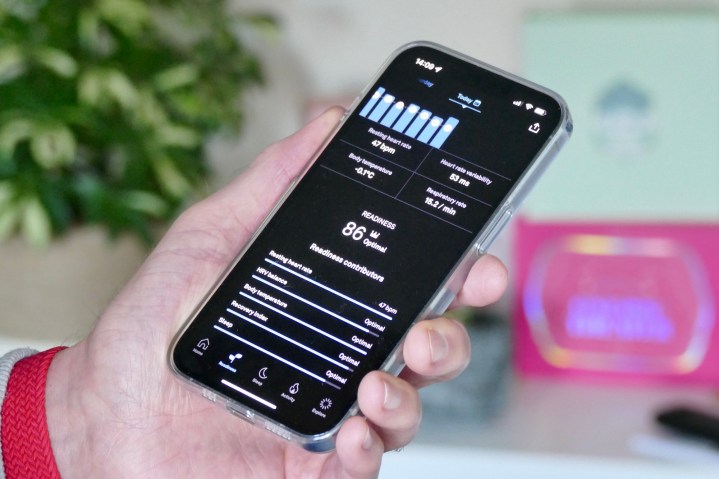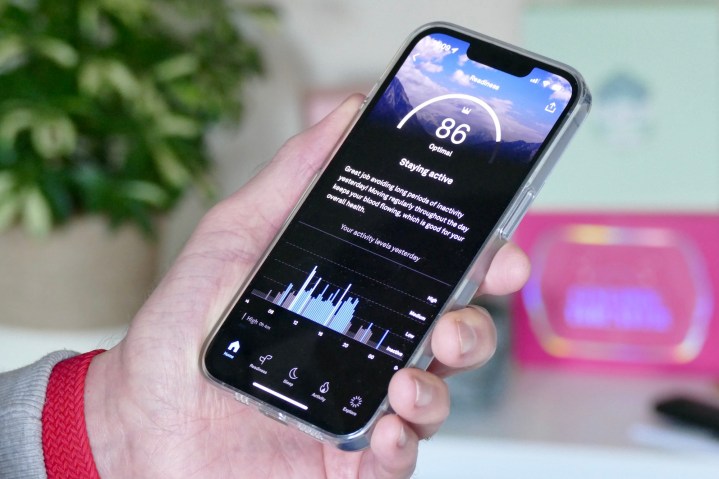Have you ever wondered if the data recorded by a wearable gives you insight into how your body is really performing? Research from Oura, created by data taken from the Oura Ring smart ring, shows wearables really can better inform you of your health, and even warn of oncoming infections.
For its research, the team concentrated on its wearers who had a confirmed COVID-19 infection, and also tracked the body’s response to the COVID-19 vaccine. The results are interesting, as they show that — despite not being medical devices — wearables like the Oura Ring and the data presented can help us understand our body’s response to an oncoming illness.
The study showed “significant changes” to temperature, breathing rate, heart rate variability (HRV), and sleep efficiency two-and-a-half days before the wearer reported a confirmed case of COVID-19. The changes then continued for 10 days or more.
The Oura Ring’s data also tracked the body’s response to the COVID-19 vaccine. The research showed a lesser, but apparently similar, response to an infection that started the night after the wearer received the vaccine and continued for up to four days. The research states the response was greater in those ages 35 and younger, and after the second dose. Oura says this is indicative of a stronger immune response.

In the Oura Ring app, body temperature, HRV, and respiratory rates are shown under the daily Readiness section, which gives wearers an overview of how ready their body is for the day. Oura attaches a Readiness Score based on various contributing stats — including those mentioned above — that helps you plan for the day ahead. There are clear graphs showing both HRV and your heart rate while sleeping, so it’s simple to find and understand the data Oura used in its research.
It’s worth noting the Oura Ring didn’t know people were sick with COVID-19. Specifically, it recorded data that indicated the body was fighting an infection. The study was written by Oura’s science team, and the data was taken from 838 Oura wearers with a confirmed case of COVID-19, and 20,267 wearers who reported getting the COVID-19 vaccine. Measurements were examined the month before and after each case and vaccination, and the research has been published in the peer-reviewed journal Digital Biomarkers.

What Oura’s data and research show is the value in understanding our personal baselines, which wearables like the Oura Ring establish over time. Sudden changes are flagged, and provided we passively monitor the data collected on a regular basis, we can see these alterations clearly in the associated app. It could help explain why we don’t feel great, and warn of a potential infection.
The Oura Ring starts at $299 and requires a $6 monthly subscription after an initial trial period. If you decline the subscription, the key data used in this research isn’t shown in the app. Most other wearables with the required sensor array will also provide similar information, but the Oura Ring’s app is one of the best available for presenting it in a logical, easy-to-understand way.
Editors’ Recommendations


